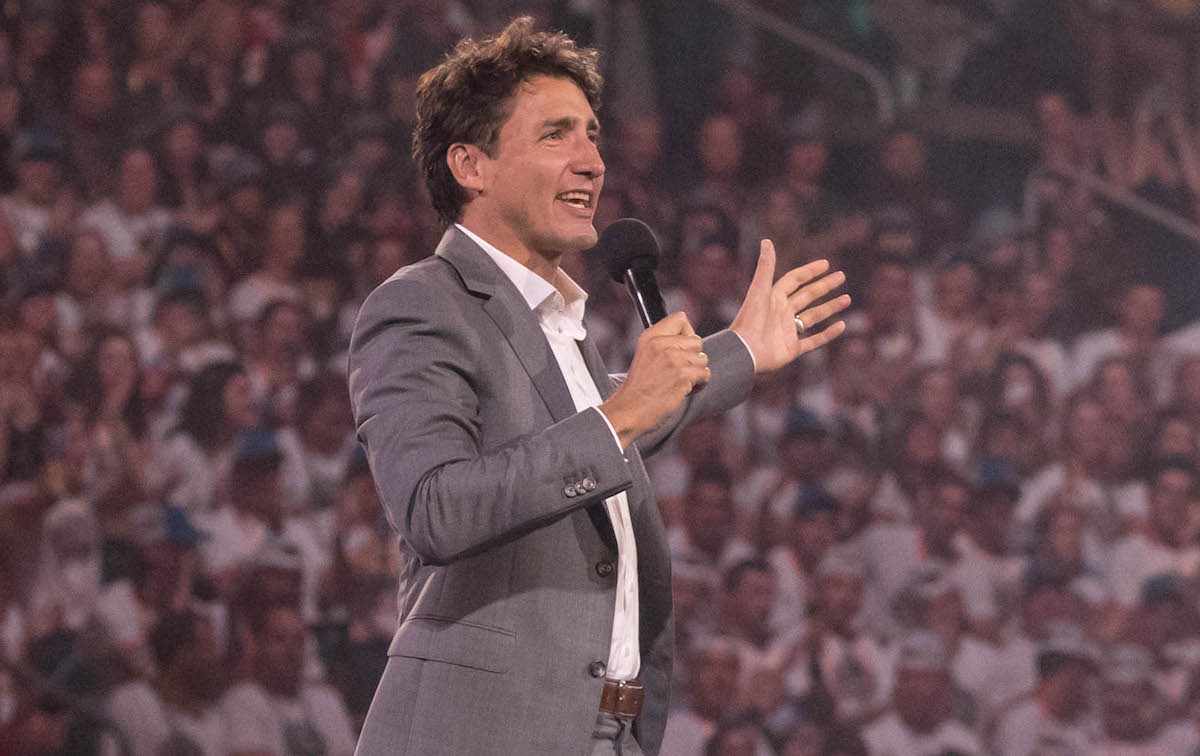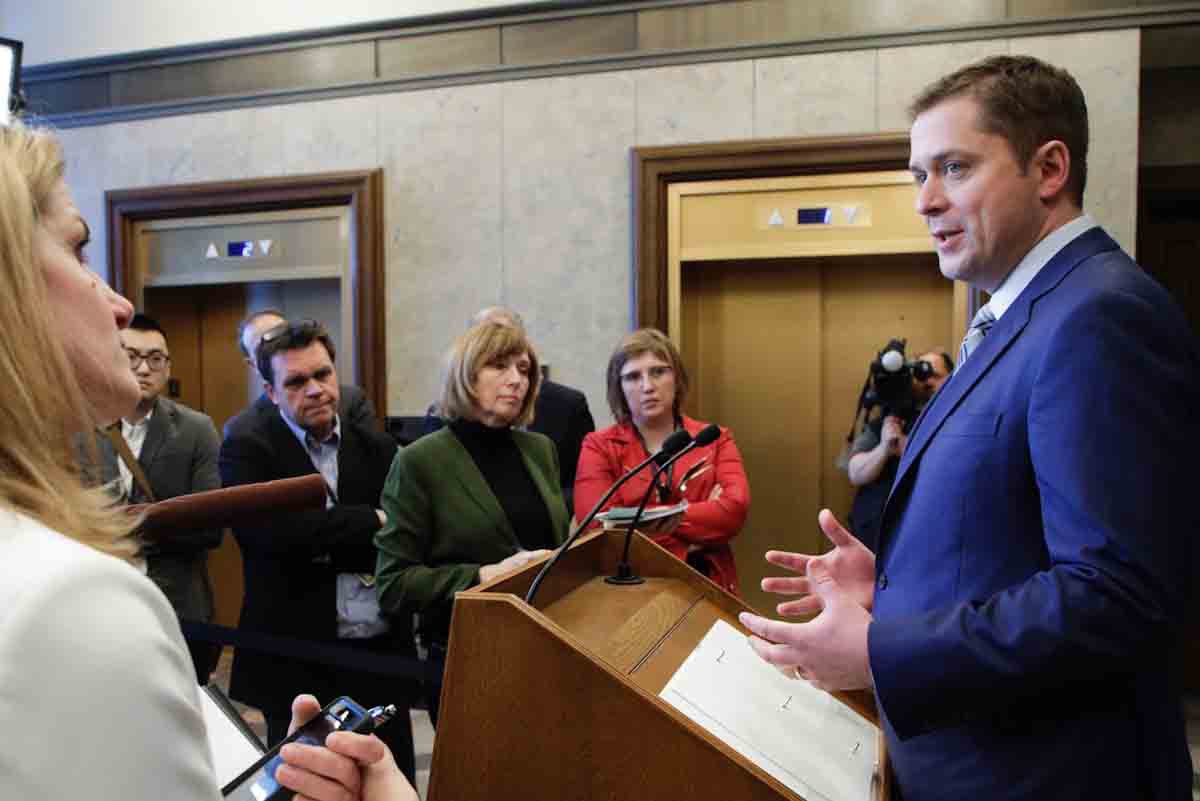recent
The Rise and (Possible) Fall of Justin Trudeau Show the Perils of Woke Governance
Whatever the fate of Trudeau in the wake of this scandal, progressive politicians everywhere should take heed of the larger lesson.

The scandal that has engulfed Justin Trudeau’s government in recent weeks is, in many ways, a very Canadian affair: It involves no sex, violence or even allegations of personal enrichment. Rather, it centers on the question of whether the Prime Minister and his representatives improperly pressured his ex-minister of justice—a former Indigenous chief named Jody Wilson-Raybould—to back off the criminal prosecution of a well-connected Quebec-based engineering firm that has been charged with fraud and corruption.
To be clear, no one is alleging that Trudeau and his minions flat-out ordered Wilson-Raybould to reverse her decision in the case. In true Canadian style, the badgering of the former justice minister seems to have been a largely passive aggressive exercise, with a succession of public figures reminding her about all the many, many jobs that might be lost in (politically sensitive) Quebec if she didn’t reconsider her decision. And when she stuck to her principles and failed to relent, the PM removed her from her justice-ministry post, and pushed in a newcomer named David Lametti who—quelle surprise—seems quite open to revisiting Wilson-Raybould’s original decision. As dry as all this must sound to non-Canadians, the scandal (which doesn’t have a name yet) has become a huge deal in my country. And the latest polling suggests it has done severe damage to the Liberal brand in the run-up to this year’s national election.
All governments eventually become enmeshed in some kind of scandal, of course. But Justin Trudeau’s Liberals are unlike their predecessors in one crucial respect: They have created the first national government anywhere that has explicitly presented itself as a political vessel of ultra-progressive social-justice mantras such as intersectionality and #MeToo. And there is evidence to suggest that this scandal has been all the more damaging to the Liberals precisely because their grubby treatment of a principled Indigenous woman is so obviously at odds with the pious social-justice posturing that, until just a few weeks ago, often made the Liberals sound more like an activist organization or undergraduate student society than a G7 government.
* * *
Trudeau’s woke identity is something he brought into office from day one. He banned anyone with pro-life views from his caucus, then tried to force recipients of a Canadian summer-jobs fund (including Bible camps) to declare support for pro-choice dogma. When asked why he insisted on creating Ottawa’s first gender-balanced cabinet, Trudeau declared, “because it’s 2015”—as if to suggest that anyone who didn’t support affirmative action was a misogynist (causing feminist website Jezebel to gush that “the sexiest thing about Justin Trudeau is his cabinet’s gender parity”). Under the Trudeau government’s bill C-16, pronoun misusage could become actionable under Canadian human-rights law. His government has introduced new environmental impact assessments that require project managers to impute “the intersection of sex and gender with other identity factors” in their environmental analysis. And he has promised transgender offenders the right to be imprisoned in jails that align with their gender expression.

On the question of “male toxicity,” in particular, Trudeau often has seemed like a social-justice Twitter account on two legs. He told Marie Claire magazine that he was raising his sons in a way that would allow them “to escape the pressure to be a particular kind of masculine that is so damaging to men and to the people around them. I want them to be comfortable being themselves, and being feminists—who stand up for what’s right, and who can look themselves in the eye with pride.” Trudeau also talked about the need for “gender budgeting” when it came to “big infrastructure projects” such as oil pipelines, since “gender impacts when you bring construction workers into a rural area…because they’re mostly male construction workers.” And of course, Trudeau has spent a good deal of his time as Prime Minister talking about “reconciliation” with Indigenous people—which has mostly involved leading a maudlin exercise in national self-flagellation. Fittingly, when asked by reporters on Thursday whether he would be apologizing for anything to do with the Wilson-Raybould scandal, he said no—but then added that he would be apologizing to Canada’s Inuit later in the day (for Ottawa’s handling of a tuberculosis outbreak that took place more than 50 years ago).
Not all of these policies turned out badly, I should say. Trudeau’s decision to ensure 50% female representation in his cabinet, in particular, seems entirely vindicated by the emergence of stars such as Foreign Affairs Minister Chrystia Freeland (a possible Trudeau successor, in my view), Treasury Board president Jane Philpott (who resigned last week) and Wilson-Raybould herself. Nor can he be faulted for highlighting the appalling treatment of Canada’s Indigenous peoples by generations of Canadian politicians—even if he seems more interested in performative contrition than creating new policies. But taken as a whole, his government’s over-the-top embrace of the most faddish forms of social justice has come to so completely define his brand that it has turned him into a sort of caricature, and obscured his very real accomplishments on important issues such as trade. In 2018, when he publicly corrected a woman who had used the word “mankind”—“we like to say peoplekind,” the PM admonished—the country took the absurd rebuke at face value, and Trudeau was pilloried. Days later, Trudeau explained that he was joking. That seems credible, but the very fact we all assumed he was serious shows what kind of po-faced politically correct image he had fostered.
If you are a professor, or a student, or an activist, it is entirely possible to live every moment of your publicly observable life in a way that is consistent with social-justice ideology—because these individuals’ only publicly observable actions are composed of largely symbolic social-media declarations. But that isn’t true of politicians, who, as Justin Trudeau has learned, must occasionally make real-life decisions. For all his talk about #climatechange and #reconciliation, for instance, Trudeau’s government had no choice but to plow ahead with a controversial US$3.5-billion pipeline that is opposed by environmentalists and some First Nations groups—for the simple reason that most Canadian voters care far more about unfashionable concerns such as jobs and energy access than they do about climate change or Indigenous rights.
One of Trudeau’s great political gifts is that he is extremely photogenic. Combine that with his penchant for social justice, and you get some great moments—such as the embrace between Trudeau and Wilson-Raybould at her 2015 swearing-in ceremony, when she became the public face of the Liberals’ reconciliation efforts. Three and a half years later, such images have come back to haunt Trudeau, as Indigenous leaders (and even members of Wilson-Raybould’s own family) react to her ouster. What’s worse, in testimony to the Commons justice committee this week, former Trudeau advisor Gerald Butts (who resigned last month amidst the scandal) more or less declared that everything Wilson-Raybaud had told Canadians is untrue. The Liberals have been careful not to call her a liar. (“I believe she spoke…her truth,” is how Freeland gingerly put it during a CBC interview last week.) But even so, it is impossible to reconcile Butts’ attempt to discredit Wilson-Raybould’s narrative wholesale without making nonsense of Trudeau’s woke 2018 claim that “when women speak up, it is our duty to listen to them and to believe them.”
To reiterate: All political parties succumb to realpolitik sooner or later. What makes Trudeau different isn’t that he is less ethical than most of his prime ministerial predecessors. It’s that he ran the first government in Canadian history that not only lectured Canadians about matters of policy, but also consistently instructed them how to live and think—how they should practice feminism, raise children, use pronouns, and seek to absolve their collective sins against Indigenous peoples. The bullying of Wilson-Raybould—which is the way many Canadians have come to regard the way she was treated—isn’t just a scandal in and of itself. It also makes a retroactive mockery of all the sermons we Canadians have had to listen to over the last three years. It feels like showing up early for an appointment with a nutritionist, and catching her wolfing down a whole sleeve of Oreos.
The most successful Liberal Canadian prime minister of our era was Jean Chrétien, who left office with his reputation (largely) intact, despite scandals an order of magnitude more serious than l’affaire Wilson-Raybould—including Shawinigate and Adscam. In part, that’s because when he was caught, Chrétien more or less just shrugged and said, in so many words, “yeah, you got me.” He had never pretended to be a high priest of human morality—and so while his actions seemed base, they didn’t seem altogether hypocritical. I was one of the many Canadians who welcomed Trudeau’s more idealistic style of Liberal governance. But his tenure also has taught me to miss some aspects of Chrétien, who, for all his faults, at least never arrogated to himself the role of national scold. I miss that.
Whatever the fate of Trudeau in the wake of this scandal, progressive politicians everywhere should take heed of the larger lesson. Social-justice purists have a habit of turning on their own, because no one is capable of living up to the program of doctrinal purity that the movement prescribes. When this happens to some lapsed social-justice warrior on Twitter, it brings grief to one person. When the target is a lapsed national leader, the collateral damage can extend to an entire government.






